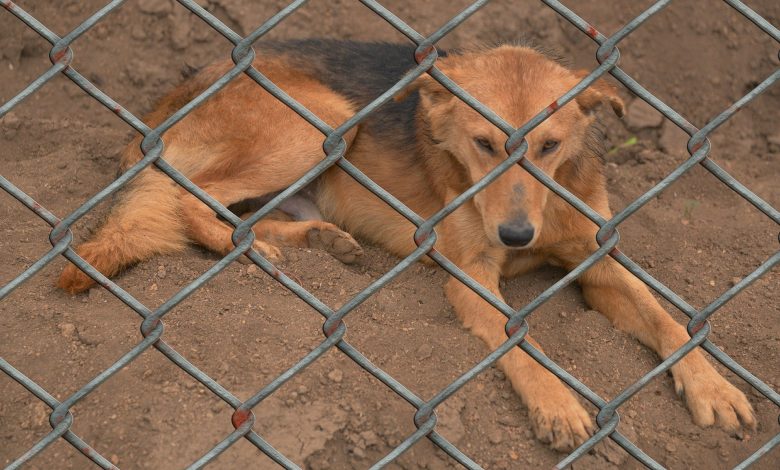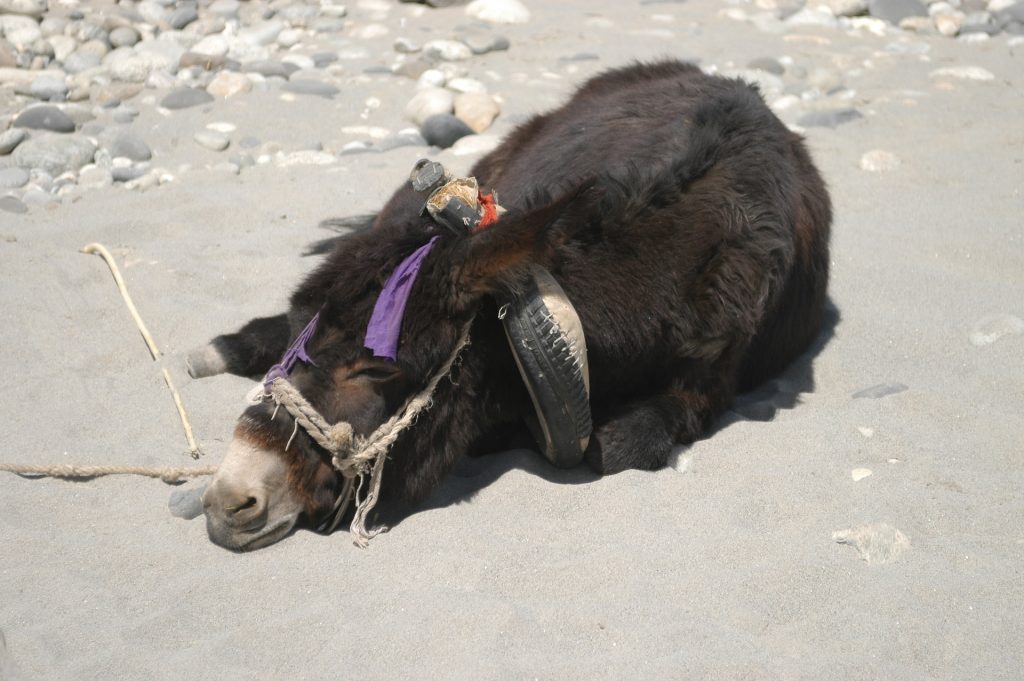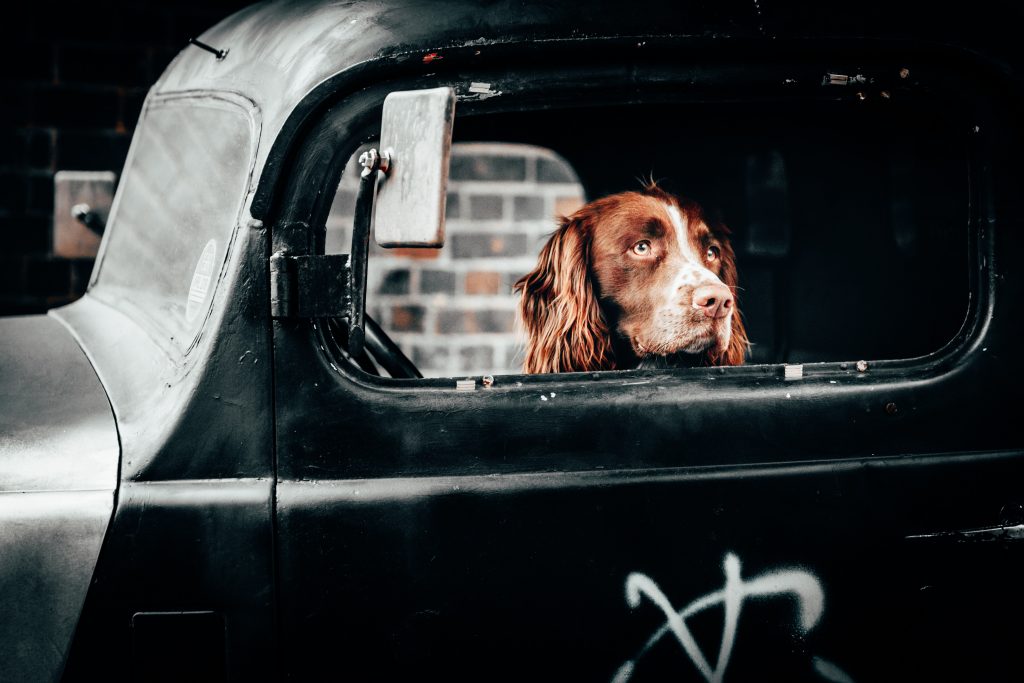When Is Animal Cruelty a Felony?

An animal means something different to each person. Some people view one as a pet, while others need them to navigate through medical or psychological challenges. Farmers consider livestock as crucial business assets. Police officers see dogs as their partners and protectors. Yet for some people, a cat, dog, or horse is equated with an animal cruelty felony case.
It is important to keep in mind that animal abuse isn’t always intentional. For example, a careless or negligent pet owner may be breaking the law without realizing it. If this is the case, the consequences of their actions could land them in criminal court. Moreover, intentional animal abuse isn’t always a felony. In other words, the punishment depends on where you live. Nonetheless, certain violations have a consistent penalty across the board. The FBI also established a new way to categorize and prosecute animal abusers.
Animal Cruelty Felony Charges: What You Need to Know
Animal cruelty and abuse are illegal. This applies to all animals, including cats, dogs, rabbits, horses, cows, and livestock. To clarify, here are some examples of criminal acts against animals:
- Torture and physical beatings
- Injury and mutilation
- Abandonment
- Overworking farm animals, guard dogs, and livestock
- Reckless transportation, such as in an overcrowded vehicle
- Hoarding pets (having too many domesticated animals)
- Organized animal abuse (cockfights and dogfights, for example)
- Negligence and failing to provide adequate/sufficient care
In recent years, U.S Presidents and the Congress further added violations that constitute animal abuse crimes. Last year, the Preventing Animal Cruelty and Torture (PACT) Act made it a crime to crush, drown, burn, or inflict physical harm on animals. Beforehand, in 2010, the Animal Crush Video Prohibition Act addressed cruelty in the digital age. The law specifically handled the issue of crushing animals on camera, making it a crime to record and publish/distribute these videos.
Domestic Violence, Drugs, and Homeless Pets: Key Concerns
In part, lawmakers drafted animal cruelty laws to tackle other related problems. Animal abuse is largely correlated with domestic violence. For instance, according to the Humane Society of the United States (HSUS), over seventy percent of abusers target humans alongside pets. Moreover, eighty eight percent of child abuse suspects also went after animals in the household.
Equally as important, cruel practices and drug trafficking come hand-in-hand. To be more specific, the DEA discovered that gangs organized cockfights and dogfights. After that, they used the events to smuggle and distribute illegal substances. Just as noteworthy, puppy mills are contributing to dog homelessness. The Department of Agriculture considers this to be a leading concern.
Additionally, the FBI started to pay special attention to animal cruelty in 2016. Firstly, the bureau placed an animal cruelty felony under its Class A category. To clarify, this classification is reserved for the most serious crimes. Secondly, the FBI began recording the information of suspected abusers in its Uniform Crime Report database. This platform is generally used to document murder and homicide case developments.
Above all else, the FBI introduced a new categorization system that applies to animal abuse investigations. It determines how severe a certain violation is. The FBI’s four categories are:
- Simple or gross negligence
- Intentional abuse and torture
- Organized cruelty
- Animal sexual abuse
Always a Felony
Some common violations have expansive or ambiguous meanings. For example, different states’ laws define negligence and adequate care in their own way. Equally as important, committing the act, in itself, may not be enough to constitute a felony. Instead, a violator’s intentions and the results of their practices also play a key role. This is not to say that there aren’t consistent laws across the board.
Intent
A crime that falls under the FBI’s Intentional Abuse and Torture category is almost always a felony. These charges are even more serious when the suspect demonstrates “extreme indifference for life.” The law uses the same term to describe murderers that have malicious intentions, such as mass shooters. When someone plans on abusing animals with extreme indifference for their lives, enforcement agencies will certainly file felony charges against them.
Other examples of intentional cruelty include prolonged labor hours, reckless transportation, and abandonment. For instance, farmers cannot force their horses to provide labor for long hours or up until they become unconscious from the exhaustion. Similarly, the law prohibits ranchers from moving cattle and cows in dangerous or unsafe vehicles. It is also illegal for a dog’s owner to abandon it in the woods or streets when they can’t care for it. Most of the time, this is considered an animal cruelty felony offense.

Organized Animal Abuse
A dogfight is a pre-arranged physical encounter between two dogs. These events tend to attract sizable audiences. Onlookers commonly place monetary bets in favor of one of the dogs. Cockfights operate the same way, but they involve chickens, instead. Dogfights and cockfights are also illegal. Many them escalate to violence between humans. In California, for example, someone got murdered after getting into an argument over a ten dollar cockfight wager.
Puppy mills are another form of organized animal abuse. Puppy mill operators breed dogs and make a profit when they sell the offspring. Yet these facilities are infamous because of their subpar conditions. However, this problem goes beyond that. In many cases, puppy mills can make dog populations overcrowded in certain areas and locations. As a result, communities end up with many homeless and stray dogs. Individuals who run or own a puppy mill commit an animal cruelty felony.
Sometimes a Felony
Negligence is the most confusing type of animal abuse for several reasons. Firstly, some forms of neglect are more serious than others. Therefore, so are the respective punishments. Secondly, states will treat and define negligence in different ways. Under Florida law, for instance, an owner who simply feeds and houses their pet meets the “standard of care” requirements. In Washington state, meanwhile, animals must have a spacious living area and adequate veterinary care. Thirdly, the result of the abusive practice, even if it’s not deliberate, could determine whether local authorities will file animal cruelty felony charges or not.
Serious Animal Neglect
Hoarding
Although unintentional, some types of negligence have severe consequences. The law certainly acknowledges that. Hoarding, as an example, is a serious form of animal neglect. According to the Hoarding of Animals Research Consortium (HARC), three traits define this practice. Pet hoarders usually have an abundant number of animals, up to the point that they can’t properly take care of them. Hoarders also ignore (or outright deny) the negative impacts on their personal and pets’ health. Moreover, they disregard how dangerously filthy the living space is.
For instance, hoarding leads to overcrowded homes and disease-ridden environments. Across the United States, it is a crime to hoard pets. Some local laws don’t directly address this behavior. Instead, they treat the filthy and ailing conditions that the pets are exposed to as abuse and negligence. However, hoarding, in itself, is an animal cruelty felony in several states, regardless of how healthy or well-fed the pets are.
Bad Weather
Even though leaving a dog in the car is common, it is also illegal, especially when the weather is too warm or cold. The same applies to keeping a dog on a chain or leash outside. Equally as important, when a pet is in a car without any open windows, they could suffocate or faint due to the lack of oxygen. In fact, states are making it legal for pedestrians and civilians to break a car’s window or door in order to save an animal.
State prosecutors will likely file serious neglect charges against violators, even more so when the pet is left in extremely hot or cold temperatures for a long period of time. In New Jersey, owners can’t leave their pets in harsh weather conditions for over thirty minutes, as an example. Many jurisdictions consider it an animal cruelty felony when the dog/cat dies or suffers long-term damage.

Result
All over the country, courts take the outcome of the abusive or negligent actions into account when they make rulings. That is to say, if the pet dies or becomes permanently harmed, the judges will charge the abuser with an animal cruelty felony. Yet this isn’t the case across the board. In many states, the result, in itself, doesn’t shape the court’s decision. Instead, the law also takes into account the defendant’s intentions and how reckless/negligent they were.
To illustrate, here is an example: A dog owner decides to leave town with a friend for the weekend. Five minutes after the two started driving, the owner tried to remember whether or not the dog’s bowl was filled, but they decided not to stop home and double check. When the owner came back, it turned out that they forgot to leave enough food and water.
If the dog died, various states will not file criminal or felony charges against the owner because they didn’t intend to harm the animal. Certain localities may treat it as a civil violation. The punishment for that is only a fine or penalty. In other jurisdictions, meanwhile, the government prosecutes the reckless owner as a criminal due to the consequences of their negligence.
Standard of Care
This term defines whether or not negligence constitutes abuse. Every state establishes their own standard of care requisites, but they largely vary from location to another. Going back to our New Jersey example, state law covers the type of flooring and lighting that pets should enjoy. The Garden State’s owners must also provide their animals with access to clean water and reliable ventilation.
Furthermore, a pet’s leash must allow the dog or cat to move fifteen feet or more when the owner is away. Similarly, in New York state, it is against the law to give an animal tattoos or piercings. More likely than not, law enforcement officers in New Jersey and New York aren’t patrolling neighborhoods to enforce these rules. However, keep in mind that the violations could escalate to more serious charges if a pet dies or gets seriously harmed.
Animal Cruelty Felony Defenses
Accused felons could face lengthy jail sentences and sizable fines. Equally as important, the government will very likely confiscate their pets and prohibit them from owning new animals in the future. If you are drafting an animal cruelty felony defense, your case depends on the answers to three critical questions. Firstly, whose pet or animal did you allegedly abuse? Secondly, is the prosecution filing any other charges against you? Thirdly, did you previously commit an animal abuse violation or crime?
Ownership
The law considers animals as their owners’ property. In other words, harming another person’s pet is much more serious than abusing your own. To give an example, an individual may hit their cat without facing any legal repercussions in several states. Yet if they attacked the neighbor’s pet, the victim may sue them for conversion and/or damaging their property, alongside animal abuse charges that the government could file.
Criminal charges also apply when someone unintentionally injures or kills another person’s animal. In those instances, the courts rely on the same negligence laws and processes that we previously outlined. The only exception is when an individual acts in self-defense.
For example, killing a dog that threatened you or your animals (such as pets or livestock) is perfectly legal. However, this must be done out of necessity. That is to say, you can’t go after a dog that harassed you in the past whenever you spot the animal on the street. Similarly, it unlawful to poison a cat or dog because they trespassed into your property. Both of those actions could also lead to criminal charges.
Companion Animals and K-9 Officers
The courts will treat the defendant even more unfavorably when they abuse another person’s companion animal. In short, the law doesn’t consider companion animals to be pets. Instead, people with a disability (such as blindness) or mental illness (like depression) rely on animals for guidance and emotional support, respectively.
In Washington state, the injured companion dog or cat’s owner may sue you for psychological distress. However, this isn’t common in other states. Lawsuits and/or criminal charges are mostly limited to financial losses (veterinarian costs, as an instance), violation fines, and/or jail time. Needless to say, the punishment for attacking or killing a police dog is incredibly hefty. Damaging government property, in itself, is a serious crime.
To give an example, an Arizona judge sentenced a defendant to forty-five years in prison after they killed a K-9 officer. While the offender also committed other crimes, such as attacking law enforcement officials, harming a police dog is arguably the most consequential type of animal abuse. In Pennsylvania, doing so carries a ten-year prison sentence and a two-hundred and fifty dollar fine.

Multiple Accusations and Repeated Offenses
More often than not, animal abuse is associated with other forms of aggression, especially towards humans. Because of this, suspects who face animal cruelty felony charges will probably have to debunk other allegations at the same time. Their severity determines how the rest of your case will go. For instance, an accused murderer should focus on evidence that proves they didn’t commit a homicide before they dispel the animal abuse charges. The former is much more detrimental than animal abuse.
A repeat offense is a felony across all fifty states, particularly when it’s done in an aggravated manner or with an extreme indifference for life. Only four states reserve felonies for second-time violators. The rest of the country, however, will slap felony charges when criminals commit aggravated acts of cruelty, even for the first time. Similarly, if the animal dies or suffers a long-term ailment, most jurisdictions’ laws classify the offense as a felony, regardless of whether or not this happened in the past.
In fact, outcome and intent will influence the course of any animal abuse case, even when the defendant is only prosecuted on those charges. According to the FBI, deliberate abusers are Class A felons, particularly those who are maliciously violent. Offenders who participate in organized cruelty, such as puppy mills, also fall under this category. Neglect depends on the scope of the damage. Its most serious forms, including hoarding, are treated as felonies.
Defendants should look at their case the same way that the FBI does. That is to say, when you examine law enforcement’s concerns and perspectives, it becomes much easier to articulate a strong defense. If you neglect your case, on the other hand, the accusation that you’re a reckless or inconsiderate pet owner becomes easy to believe.



